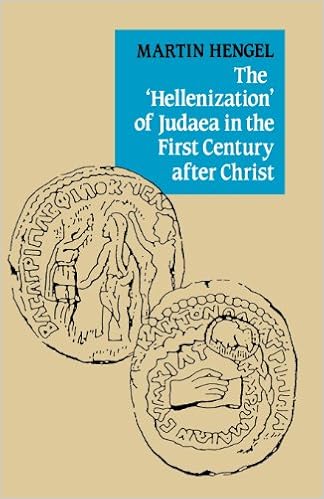As in the other book, Hengel discusses the importance of the Greek language and education, particularly to attaining social class. In the end, Hengel comes to the conclusion that what is "Greek" and what is "Jewish" is not easily separated. Indeed, as Hengel writes, "Not only Christianity but also rabbinic Judaism, which is different in so many other ways, basically rests on a synthesis."
Tuesday, May 15, 2018
On "The 'Hellenization' of Judaea in the First Century after Christ" by Martin Hengel ***
This short follow-up to Hengel's earlier book on Judaism and Hellenism treads familiar ground but also provides a few new tidbits of information that relate directly to the New Testament--and Christianity.
As in the other book, Hengel discusses the importance of the Greek language and education, particularly to attaining social class. In the end, Hengel comes to the conclusion that what is "Greek" and what is "Jewish" is not easily separated. Indeed, as Hengel writes, "Not only Christianity but also rabbinic Judaism, which is different in so many other ways, basically rests on a synthesis."
As in the other book, Hengel discusses the importance of the Greek language and education, particularly to attaining social class. In the end, Hengel comes to the conclusion that what is "Greek" and what is "Jewish" is not easily separated. Indeed, as Hengel writes, "Not only Christianity but also rabbinic Judaism, which is different in so many other ways, basically rests on a synthesis."
Subscribe to:
Post Comments (Atom)







No comments:
Post a Comment